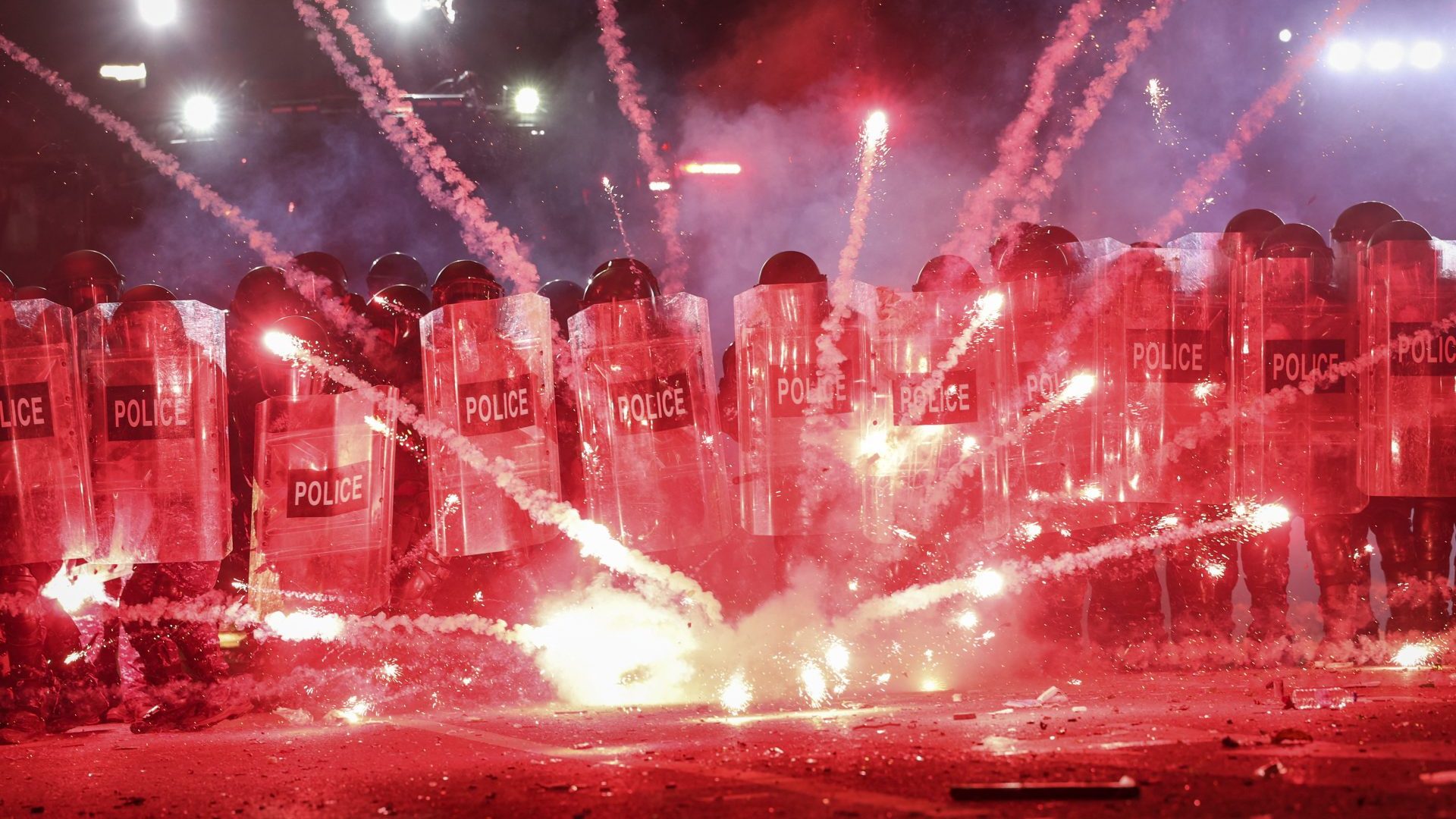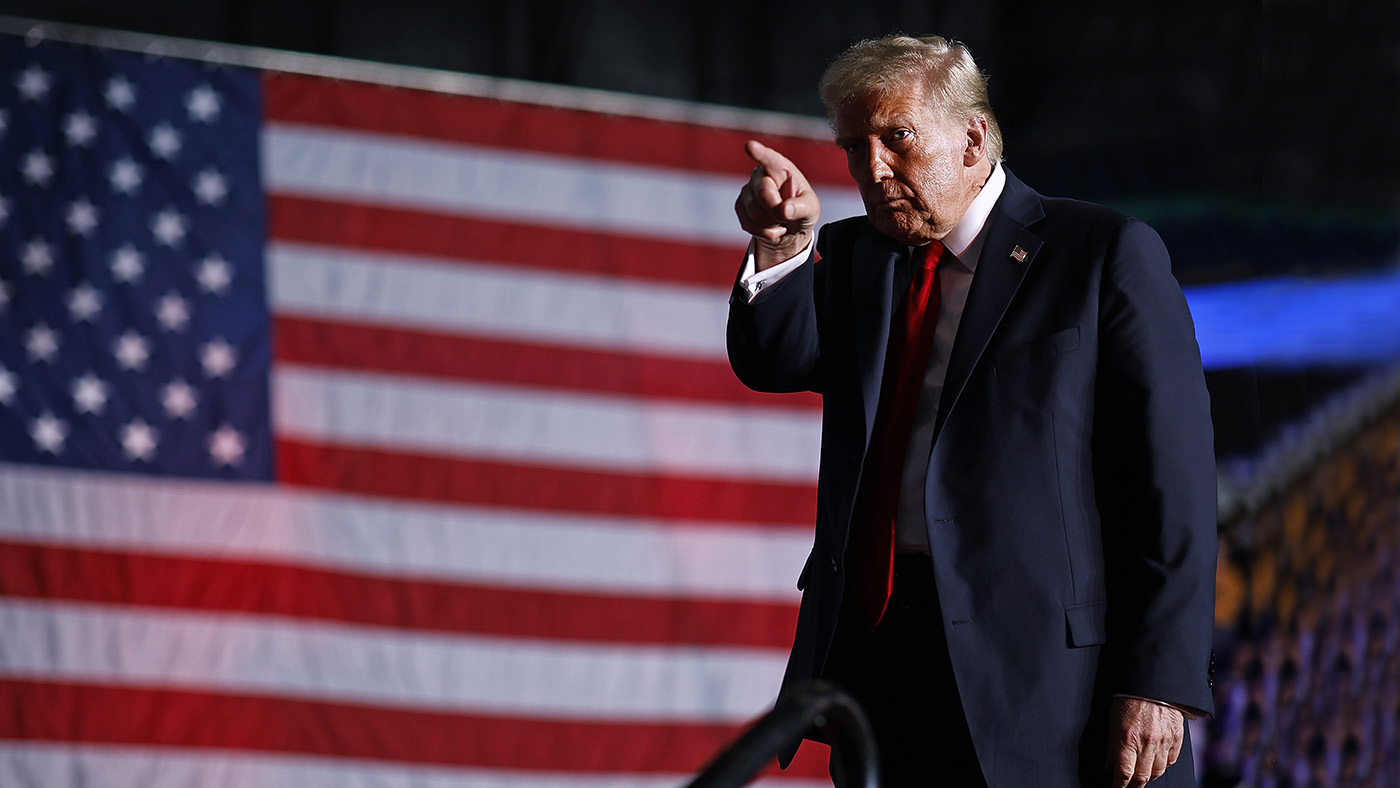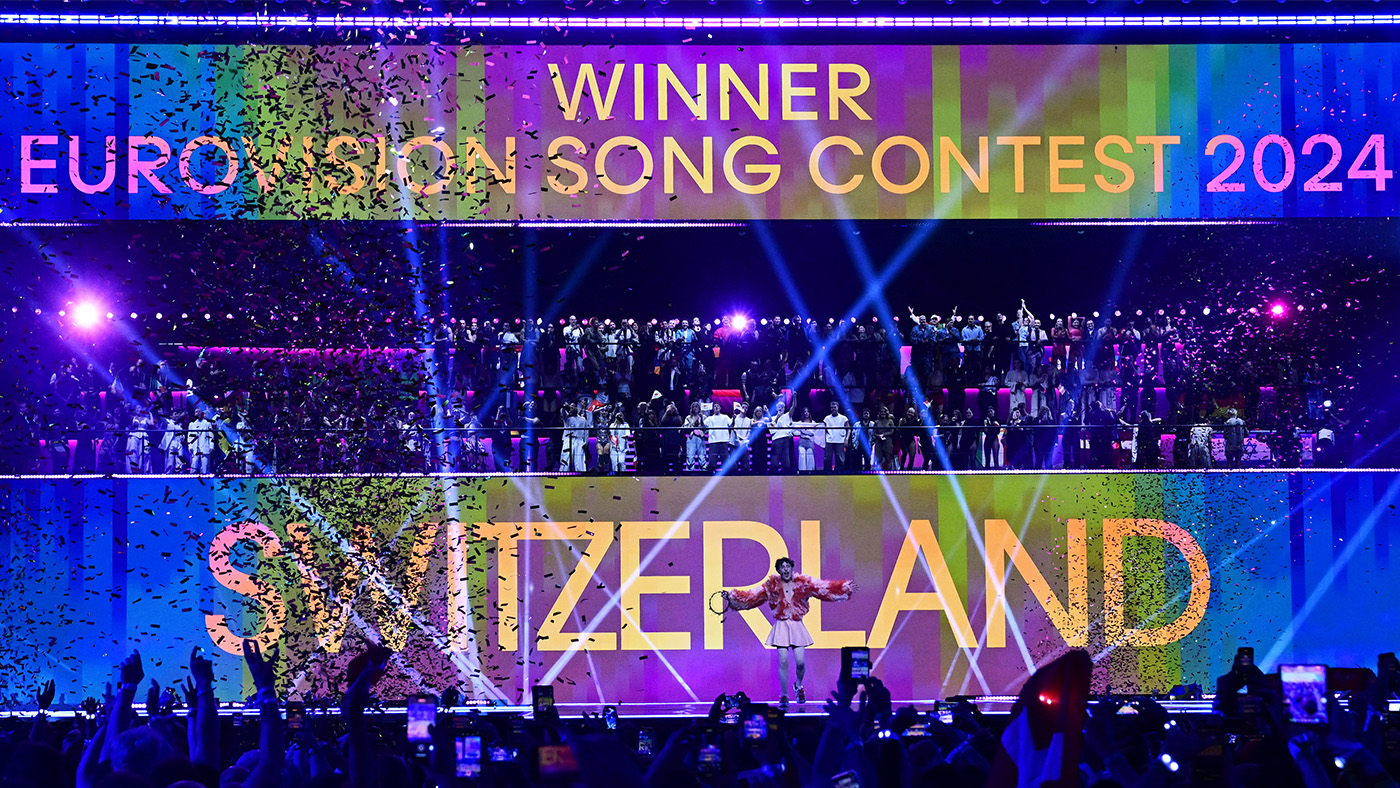I made the trek to Georgia’s parliament, not knowing I was about to watch weeks of despair transform into rage.
Earlier that day, the ruling Georgian Dream party – led by billionaire oligarch Bidzina Ivanishvili – had looked secure in its hold on power. A month had passed since Georgia’s parliamentary elections, which the party had won with 54% of the vote amid allegations of widespread fraud. In the aftermath, I had gone to the protests organised by the bickering, widely unpopular opposition. Each was more discouraging than the last.
Yet a diplomatic storm was brewing. At noon, I watched the EU pass a resolution rejecting the results of the election. By evening, the prime minister, Irakli Kobakhidze, had announced that Georgia would suspend its longstanding bid to join the EU.
In a country where over 80% of the population supports EU integration, and Russia, the former colonial power, occupies large swaths of territory, it soon became clear that the increasingly authoritarian ruling party had overplayed its hand.
As I approached the Soviet-era parliament building on Tbilisi’s central Rustaveli Avenue at around 9pm, I could feel something shifting. Gone were the long-winded political addresses and deafening pop music interludes that dominated opposition rallies after the election. The crowd of more than 10,000 had formed spontaneously. Gas masks were already hanging around necks and peeking out of backpacks.
“We need to remember Ukrainian Maidan,” said Meggie Diasamidze, a 5ft sociology student from south-west Georgia whom I’d met at other protests.
It was no small thing to invoke the 2014 toppling of Ukraine’s president, which had sent the country back into Europe’s orbit, and put it on a path towards war with Russia.
On a side street, protesters jostled with a line of patrol officers, detonating Roman candles and blinding them with green laser pointers. In front of parliament, another crowd attacked a metal barricade.
A friend tapped me on the shoulder, indicating it was time to put on my plastic hardware-store goggles and N-95 respirator. The officers had been relieved by a group of armoured “robocops” who were carrying an arsenal of crowd-control weapons.
Pops sounded from behind police lines, and a white cloud of tear gas drifted over the crowd, showing up the dancing lasers like stage lights at a concert. A stream of unmasked protesters were gulping for breath and squirting saline solution into their swelling eyes.
The crowd regrouped and pushed forward, but it soon became clear that they were no longer the centre of the action. A larger division of riot police had amassed at the central Freedom Square roundabout, and they were advancing down Rustaveli in formation.
Flashing red and blue strobes reflected off the stately façade of the Museum of Fine Arts as a calm female voice repeated in Georgian over a loudspeaker: “Citizens, please disperse. Otherwise, legal measures will be taken against you to restore law and order and to establish civil peace.”
No one moved. Chants of “Rusebo! Monebo!” – “Russians! Slaves!” – rang out from the crowd in response. Whistles screeched and plastic football horns moaned in the background.
A hulking truck behind police lines opened up with a water cannon, a crowd-control weapon that’s become something of a joke among raincoat-clad Georgian activists. One viral video from the previous wave of anti-government protests shows a young woman dancing between the jets, taunting their heavily armed operator.
My eyelids began to sting. These were not the usual water cannons, my friend told me. They had been infused with pepper spray.
The “robocops” swept down the side street and the large division of advancing riot police pushed forward as thousands of protesters beat a panicked retreat down Rustaveli.
But the crowd re-formed, and little fires began springing up next to makeshift barricades. One cadre of energetic teenagers trundled down the street wheeling a packed dumpster. Another stripped wooden planks and umbrellas from the outdoor dining area of a restaurant.
It was 4.30am, and my gut was telling me it was time to go. Within an hour, the riot squads and “spetsnaz” special forces would sweep down the avenue, firing rubber bullets and detaining any stragglers.
A few hours later, I woke to a message from my friend Sandro, a student, asking if I was OK. I said I was and asked whether people would come back to the streets the next night.
“Yes,” he said. “We are even more mad now.”
Victor Swezey is a Tbilisi-based independent journalist and Fulbright research fellow



